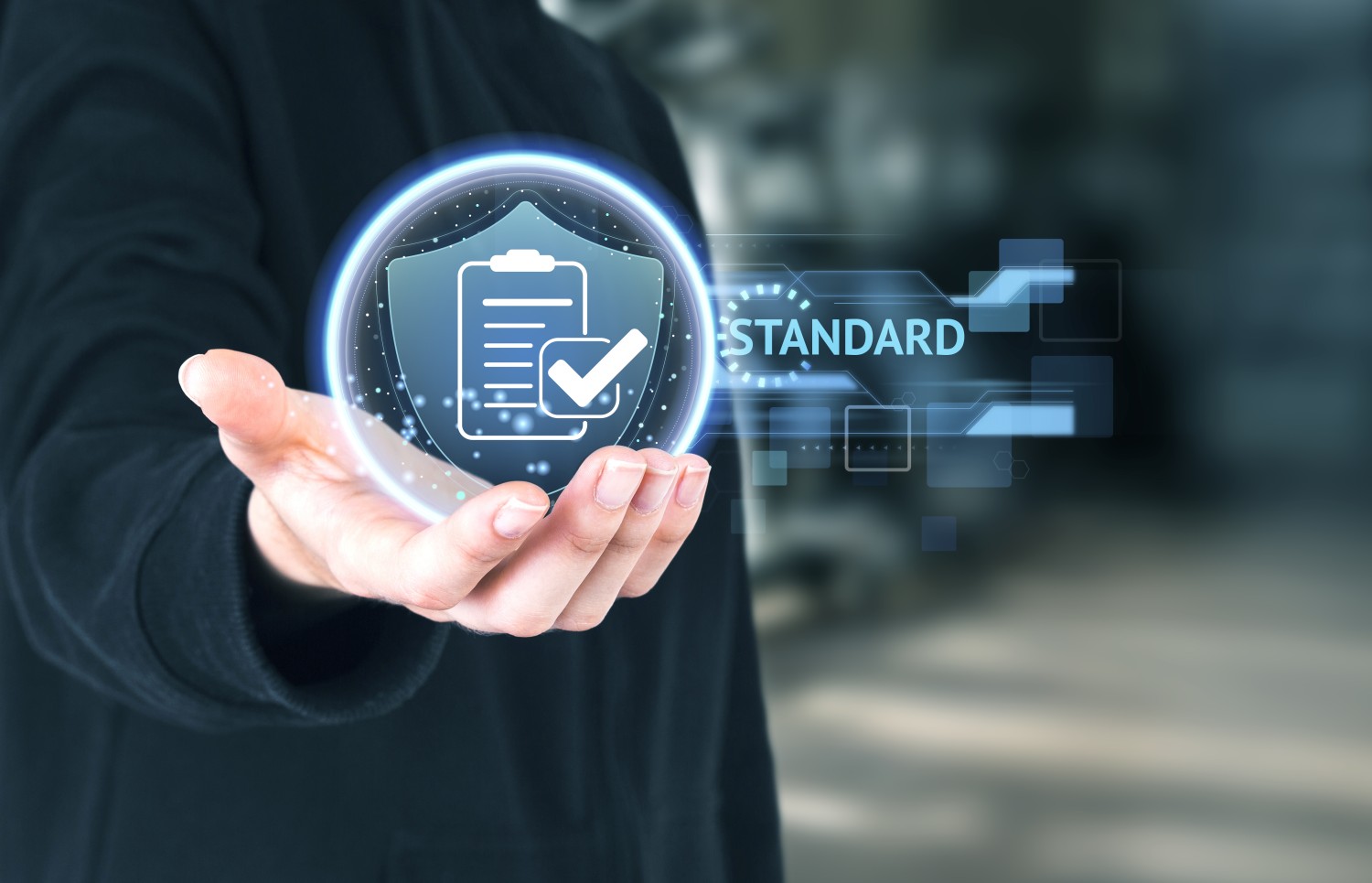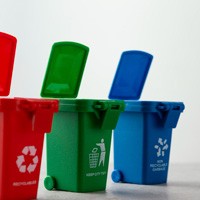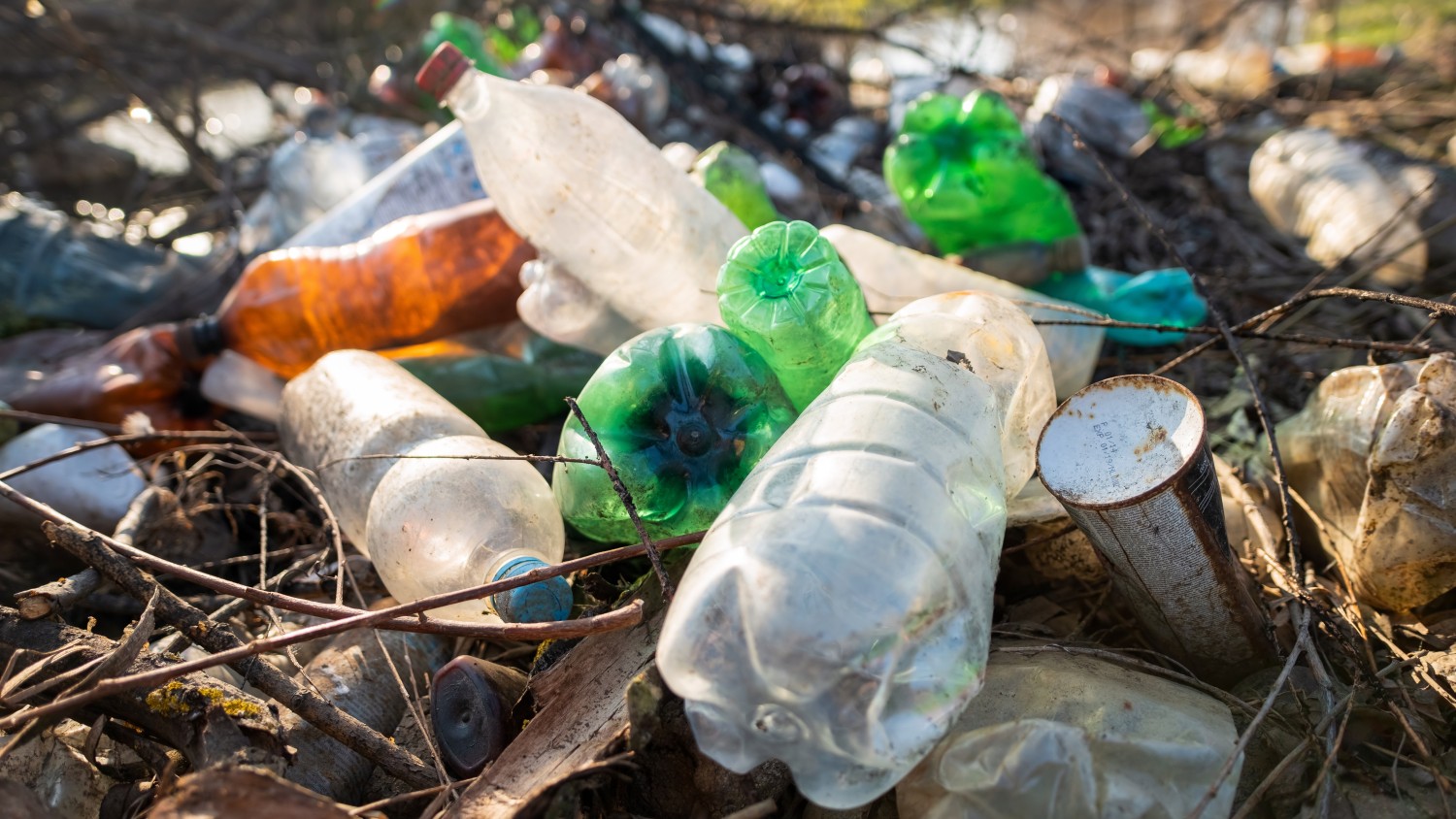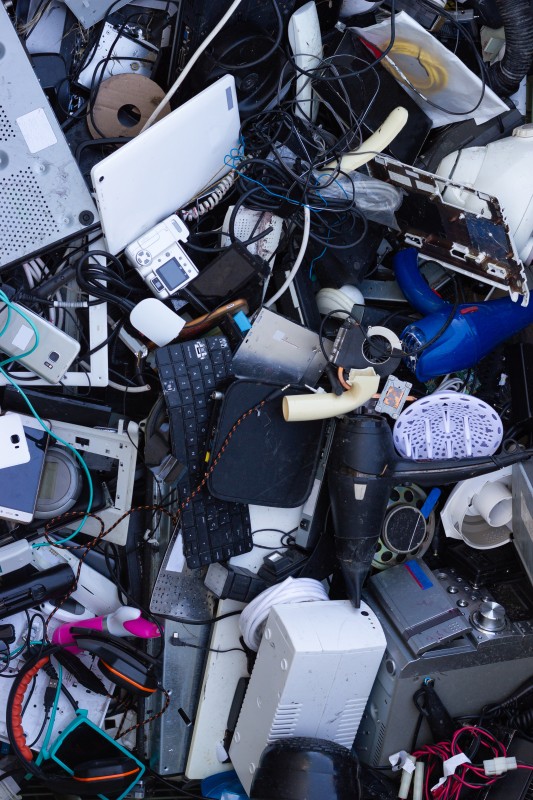Extended Producer Responsibility (EPR) Registration: A Necessity for a Sustainable Future

In today's rapidly changing world, where environmental awareness and sustainability are paramount, Extended Producer Responsibility (EPR) has emerged as a pivotal and essential tool. It places the responsibility for managing products at the end of their life squarely on the shoulders of manufacturers and producers. In this blog, we will delve into EPR registration, explore its numerous benefits, and underscore why it is not merely an option but a critical requirement for businesses.
Understanding EPR Registration:
EPR registration is the formal process through which manufacturers, importers, or producers of specific products or packaging materials declare their commitment to assume responsibility for the end-of-life management of their products. This is a regulatory requirement enforced by governments to ensure that businesses engage in environmentally responsible disposal and recycling practices.

Benefits of EPR Registration
1. 1. Environmental Conservation:
EPR registration contributes to reducing the environmental impact of products. Manufacturers are incentivized to design products that are easier to recycle and dispose of, thereby decreasing the volume of waste in landfills and incinerators. This, in turn, leads to less pollution and a healthier planet.
1. 2. Resource Efficiency:
Active participation in EPR programs often prompts manufacturers to invest in innovative product designs that consume fewer resources and materials. This not only conserves natural resources but also lowers production costs in the long run.
1. 3.
EPR programs can offer economic incentives to registered businesses. These incentives may include tax breaks, reduced compliance costs, or access to recycling infrastructure. Such benefits encourage more businesses to adopt sustainable practices.
1. 4. Enhanced Brand Reputation:
EPR registration significantly enhances a company's brand reputation. In an era where consumers prioritize eco-friendly practices, being part of an EPR program can serve as a valuable marketing tool. Consumers are increasingly inclined to favor businesses that demonstrate a commitment to sustainability.
1. 5.
By adhering to EPR regulations and registering appropriately, businesses can avoid legal troubles and fines. Non-compliance with EPR requirements can lead to significant penalties, making registration a wise choice.

Why EPR Registration is Required?
1. 1.
EPR registration is mandated to hold businesses accountable for their products' entire lifecycle. This ensures their active contribution to environmental protection and sustainability, aligning with broader societal goals.
1. 2.
One of the primary motivations behind EPR registration is waste reduction. By making manufacturers and producers responsible for their products, governments aim to minimize the burden on waste management systems and promote recycling.
1. 3. Legal Compliance:
Many countries have enacted EPR legislation, making it obligatory for businesses to register and adhere to these regulations. Failure to do so can result in penalties and legal repercussions.
1. 4.
EPR registration ensures that the responsibility for waste management is equitably distributed throughout a product's lifecycle. It prevents the shifting of this responsibility onto consumers or local governments.
The Crucial Role of EPR Registration
As the global population continues to grow, so does our consumption of products and resources. In this context, EPR registration serves as a fundamental mechanism for addressing the environmental challenges we face. Here are some additional points to consider:
1. Circular Economy Promotion:
EPR registration plays a pivotal role in promoting the transition to a circular
economy, which emphasizes reducing, reusing, and recycling materials. EPR
encourages businesses to design products with recycling and reusability in
mind, thereby closing the loop on resource use.
1. 2. Reduction of Hazardous Substances: EPR programs often include regulations that restrict the use of hazardous substances in products. This contributes to the safety of both consumers and the environment, as manufacturers are incentivized to seek alternatives to toxic materials.
1. 3. Consumer Confidence: In an age of information and consumer empowerment, EPR registration signifies a company's commitment to sustainability. This can boost consumer confidence in the brand, leading to increased customer loyalty and market share.
1. 4. Waste Reduction Targets: Governments worldwide are setting ambitious waste reduction targets, and EPRprograms are essential for achieving these goals. Engaging businesses in responsible waste management and recycling efforts enables governments to make significant strides toward reducing the environmental impact of waste disposal.
1. 5. Innovation and Green Jobs: EPR registration encourages innovation in product design and recycling technologies, potentially creating green jobs in recycling, waste management, and sustainable manufacturing sectors. These jobs not only benefit the economy but also contribute to a more sustainable future.
1. 6. Global Sustainability Commitments: EPR registration aligns with global agreements such as the Paris Agreement and the United Nations Sustainable Development Goals (SDGs). Countries worldwide are making commitments to reduce their environmental impact, and EPR programs support these efforts.
vf 
Types of EPR:
EPR programs can vary widely in scope and focus, depending on the products and materials they target and the specific environmental goals of a region or country. Here are common types of EPR programs
1. 1. Product-Based EPR:
- Electronics
EPR: Focuses on electronic and electrical equipment,
ensuring responsible disposal and recycling of devices like computers,
smartphones, and household appliances.
- Batteries
EPR: Aims to collect and recycle batteries, both
single-use and rechargeable, to prevent hazardous materials from entering the
environment.
- Automotive EPR: Addresses end-of-life disposal and recycling of vehicles and their components, such as tires, batteries, and fluids.
- Packaging EPR: Targets packaging materials, encouraging manufacturers to design eco-friendly packaging and promoting recycling and recovery of packaging waste.
1. 2. Material-Based EPR:
- Plastic
EPR: Focused on managing the lifecycle of plastic
products, reducing plastic pollution, and encouraging recycling and alternative
materials.
- Glass EPR: Aims to recover and recycle glass containers and products, reducing the environmental impact of glass waste.
- Paper EPR: Promotes responsible paper and cardboard productmanagement, including recycling and sustainable sourcing of paper materials.
1. 3.
- Paint EPR: Addresses the disposal and recycling of paint products, with a focus on reducing hazardous waste and encouraging proper paint disposal.
- Pharmaceutical EPR: Focuses on safe disposal and management of expired or unused pharmaceuticals, preventing contamination of waterways and soil.
1. 4. Multi-Material EPR:
- Waste Electrical and Electronic Equipment (WEEE) EPR: Encompasses various electronic and electrical devices, ensuring the collection and recycling of a wide range of products.
- Household Hazardous Waste (HHW) EPR: Targets various hazardous products used in households, such as cleaning agents, pesticides, and batteries, for responsible disposal.

1. 5.
- Manages the disposal and recycling of end-of-life vehicles, including the recovery of valuable materials and safe disposal of hazardous components.
1. 6. Extended Packaging Responsibility:
- Goes beyond traditional packaging EPR by extending responsibility to manufacturers and producers for managing packaging throughout its lifecycle.
1. 7.
- Specifically focuses on electronic waste, including devices, components, and accessories, with the aim of reducing the environmental impact of discarded electronics.
1. 8.
- Addresses specific types of waste, such as medical waste, agricultural waste, or construction and demolition waste, with tailored programs to manage these materials sustainably.
1. 9.
- EPR programs can be implemented at the national or regional level, depending on the regulatory framework and environmental objectives of a particular country or jurisdiction.
1. 10. Industry-Specific EPR:
- Some industries, such as the pharmaceutical or automotive industry, may develop their own EPR programs to address the unique challenges associated with their products and materials.
1. 11. P-Waste EPR:
- P-Waste EPR manages the safe disposal of pharmaceutical waste, including expired or unused medications, to prevent harm to the environment and public health.

E-waste and P-waste are two distinct categories of waste that can be managed through Extended Producer Responsibility (EPR) programs as part of responsible product stewardship. Let's take a closer look at each:
1. E-Waste (Electronic Waste):
E-waste, short for electronic waste, refers to discarded electronic or electrical devices and equipment that have reached the end of their useful life. These products can include everything from smartphones and laptops to refrigerators and televisions. E-waste often contains valuable materials like metals (e.g., gold, silver, copper) and hazardous substances (e.g., lead, mercury, cadmium) that can harm the environment if not managed properly.
EPR programs for e-waste typically focus on:
· Ensuring the proper collection, recycling, and disposal of electronic devices.
· Promoting the design of products that are easier to recycle and have fewer hazardous materials.
· Educating consumers about the importance of recycling e-waste and providing convenient collection points.
Many countries and regions have implemented EPR programs specifically for e-waste to mitigate the environmental and health risks associated with improper disposal and to encourage responsible recycling.

2. P-Waste (Pharmaceutical Waste):
P-waste, short for pharmaceutical waste, includes expired, unused, or contaminated pharmaceutical products and medications. Managing pharmaceutical waste is crucial because these products can contain active pharmaceutical ingredients that can be harmful to the environment and public health if they enter waterways or landfills.
EPR programs for P-waste typically focus on:
· Safe collection and disposal of unused or expired medications.
· Educating healthcare providers, pharmacies, and consumers about proper pharmaceutical waste management.
· Encouraging the pharmaceutical industry to reduce unnecessary packaging and promote sustainable drug manufacturing practices.
EPR programs for P-waste aim to prevent pharmaceuticals from entering the environment, either through improper disposal or flushing down drains or toilets. These programs help protect water quality and reduce the risk of pharmaceutical residues affecting aquatic ecosystems.
Both e-waste and P-waste represent specific categories of waste that require specialized handling and disposal due to their unique environmental and health risks. EPR registration for these waste categories ensures that manufacturers, importers, or producers take responsibility for managing these products' end-of-life stages, promoting sustainability, and protecting the environment.

In conclusion,
EPR registration is an indispensable component of sustainable business practices and environmental stewardship. It not only benefits the planet but also fosters resource efficiency, economic growth, and consumer confidence. Embracing EPR is not merely a choice but a responsible obligation for businesses looking to thrive in an eco-conscious world.
To know more about EPR Registration , visit www.ornatequality.com or contact us at +91-9266333338.
Recent Posts
Cokion
Cokion Private Limited is an Indian multinational technology company focusing on e-commerce, technology services, online advertising & marketing, headquartered in Bengaluru, Karnataka, India. It has its subsidiary, Cokion Inc., headquartered in Albany, New York, USA.
Welcome to Cokion com., the ultimate online shopping destination tailored for the diverse needs of consumers across the world. At Cokion.com, we pride ourselves on providing a seamless and enjoyable e-commerce experience, offering a wide range of products and services to meet the unique preferences of our customers.
Key Features:
Extensive Product Selection: Discover a vast array of products ranging from electronics and fashion to home goods and more. Cokion.com curates a diverse collection to cater to every aspect of your lifestyle.
User-Friendly Interface: Our intuitive and user-friendly platform ensures a smooth navigation experience. Effortlessly browse through categories, find detailed product information, and enjoy a hassle-free shopping journey.
Secure Transactions: Your security is our priority. Cokion.com employs state-of-the-art encryption and security measures to safeguard your personal information and facilitate secure transactions.
Fast and Reliable Delivery: Enjoy prompt and reliable delivery services across the world. Cokion.com. is committed to ensuring your purchases reach you in a timely manner, enhancing your overall satisfaction.
Responsive Customer Support: Our dedicated customer support team is ready to assist you with any inquiries or concerns. Reach out to us via various channels, and we'll strive to provide swift and effective solutions.
Exclusive Deals and Promotions: Benefit from exciting promotions, discounts, and exclusive deals regularly offered on Cokion.com. Save more while enjoying the quality and convenience of our e-commerce platform.
Mission Statement:
At Cokion.com, our mission is to redefine the online shopping experience for our customers. We aim to become the go-to destination for individuals seeking quality products, exceptional service, and a platform that understands and meets your evolving needs.










